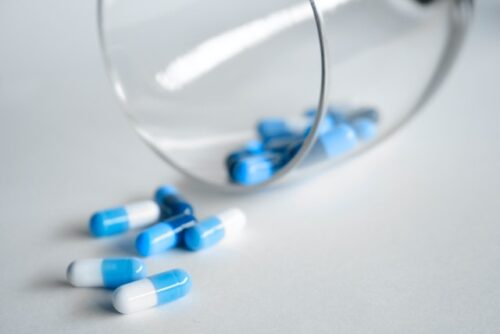
Though thousands of drunk driving accidents occur per year in the United States, most drivers are at least somewhat aware of the dangers of driving while under the influence of alcohol. However, not as many people are educated on the potential dangers of driving while on prescription medication. Tons of New Jersey residents take prescribed medications, but certain legally prescribed drugs could affect one’s ability to drive safely. To learn if you could get a DWI for taking a prescribed drug before driving, read this blog or reach out to a Bergen County, New Jersey DUI Lawyer today!
AM I AT RISK OF A DWI IF I DRIVE WHILE ON A PRESCRIBED DRUG?
It is possible to receive a DWI (driving while intoxicated) or DUI (driving under the influence) charge if you take a legally prescribed medication and it affects your ability to drive. Most people think of alcohol when they hear DUI, but both illegal and legal drugs could cause someone to be “under the influence”. This is because intoxication is defined in New Jersey law as the substantial decrease in mental and physical abilities due to alcohol or drugs. If you take a prescription medication that causes certain side effects like drowsiness or blurred vision, you could be at risk of a DWI charge. Common medications that cause these effects include pain relievers, central nervous system depressants, and stimulants.
WHAT SHOULD I DO IF I GET A DUI FOR A PRESCRIPTION MEDICATION?
If a prescription medication causes you to drive unsafely, a police officer could notice and pull you over. Most likely, the officer will assume you’re under the influence of alcohol and perform a breathalyzer and other sobriety tests. Since breathalyzer tests only show alcohol in a person’s system and not drugs, the officer will need to perform a urine or blood test in order to determine what drugs are in your system. If the police officer asks you to participate in a blood or urine test, it’s best to comply rather than refuse. You can legally refuse these tests, but refusal will likely lead to fines and other criminal charges down the line.
It’s important to note that even if a urine or blood test indicates what drugs (legal and illegal) are in your system, these tests are not enough to prove that your prescribed medication was causing you to drive unsafely. Assuming that there wasn’t any indication of alcohol or illegal drugs in the tests, you can only get a DWI charge if a drug recognition expert can prove that the medication was causing your impairment. Some officers choose not to hire a drug recognition expert in some cases.
Have you recently been charged with a DUI for driving while on a prescribed drug? You should speak with an experienced criminal defense lawyer that has your best interests in mind. Contact the Law Office of E. Gregory Cannarozzi today for an initial consultation!